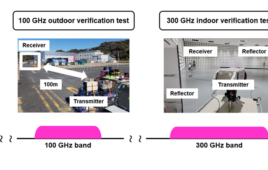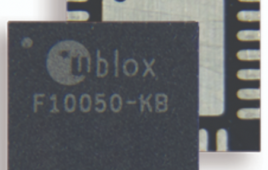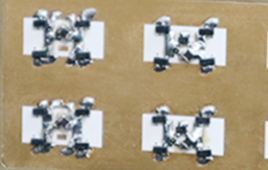Traditional discrete clocking and quartz crystal devices are susceptible to environmental stress and thus have their limitations in next-generation communications and industrial automation systems. Texas Instruments has developed an innovative bulk acoustic wave (BAW) resonator technology that will enable designers to streamline design logistics for faster time-to-market, while enabling simplified and high-performance data delivery.
Texas Instruments has developed two products incorporating the technology: the SimpleLink™ CC2652b wireless microcontroller and the LMK05318 network synchronizer clock. The technology in both parts integrates clocking resonators to provide high frequency in a small form factor. The higher level of integration improves performance and increases resistance to mechanical stress, such as shock and vibration.
The SimpleLink™ CC2652b wireless microcontroller is the industry’s first crystal-less MCU, in a quad flat pack, no-lead (QFN) package, eliminating the need for an external 48 MHZ crystal. The device is the lowest power, multi-standard device supporting ZigBee®, Thread, Bluetooth® low energy and proprietary 2.4 GHz connectivity solutions on a single chip. The devices operates over the full -40° to +85°C range, unlike many existing crystal-based solutions.
“We have been working on how to improve performance in a connected world,” says Ray Upton, vice president of connected microcontrollers for Texas Instruments. “There are performance limits with existing quartz clocking and quartz crystal devices, as they are subject to environmental stress.”
What Texas Instruments has done is to develop an innovative, proprietary microresonator technology that is integrated in silicon. The technology can produce devices are less bulky that quartz crystals and enable higher performance.
The same BAW resonator technology was used to develop the LMK05319 network synchronizer clock. Designed for 400 Gbps links, the clock has ultra-low jitter and delivers the lowest bit errors for 56 Gbps and emerging 112 Gbps pulse amplitude modulation links, according to the company. The clock requires no in-system programming and reduces bill-of-materials for ancillary components.
Kim Wong, vice president of high speed data & clocks for Texas Instruments, foresees a number of applications for the network synchronizer clock, including industrial, automotive, and medical. “Systems are getting more intelligent with lots of data,” he says.
Preproduction samples of the CC2652B wireless microcontroller are now available in a 7 x 7-mm VQFN package. Pricing starts at $3.55 each in 1,000-piece quantities. The LMK05318 network synchronizer clock also comes sin a 48-pin 7 x 7-mm VQGN package and is priced from $11.44 each in 1,000-piece quantities.




